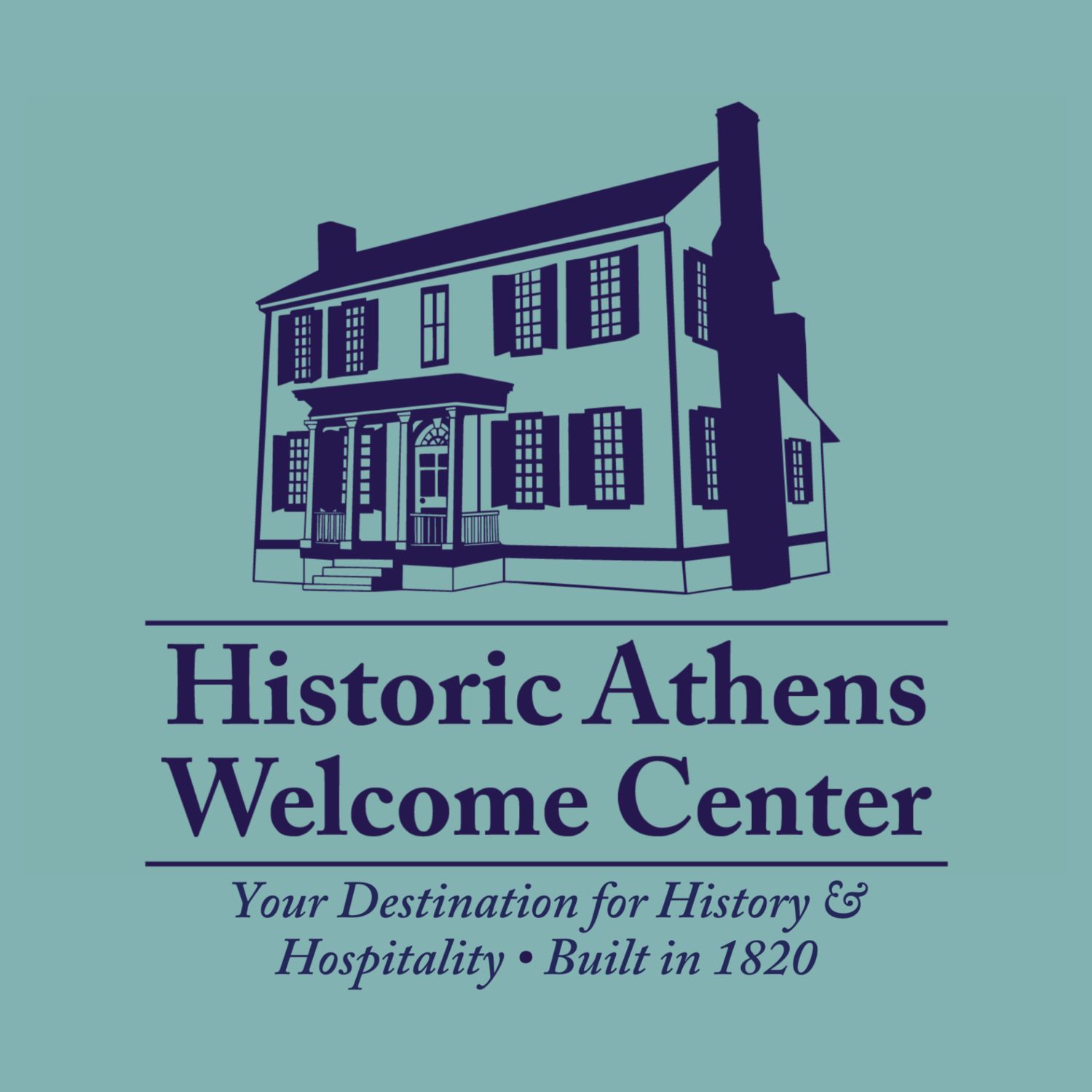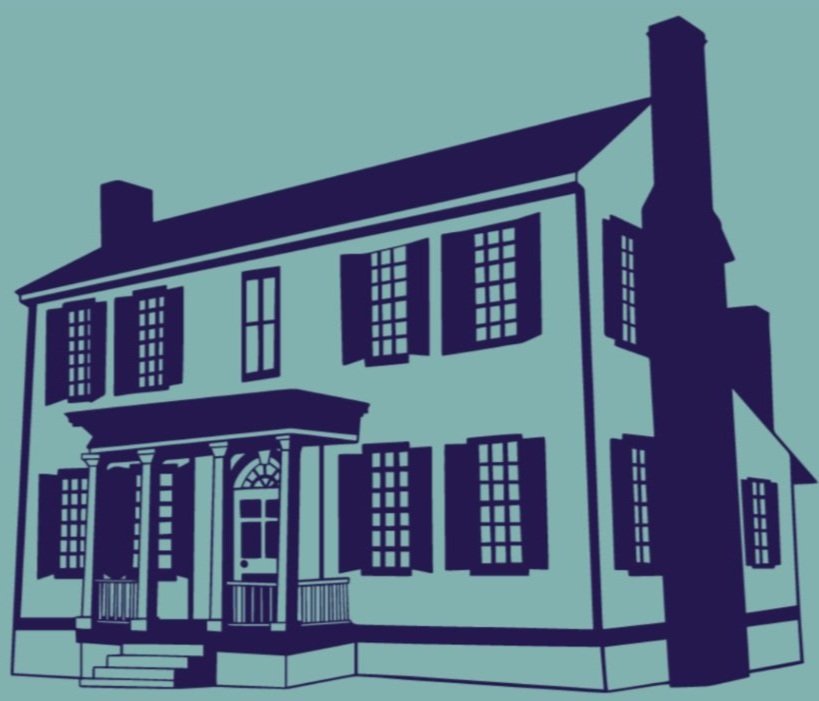Dearing Street/The Tree That Owns Itself
One of Athens’ local historic districts, Dearing Street, boasts a wide selection of House styles, from the most grand, to the most modest. The 4-block walk ends at the Tree that Owns Itself, on the corner of Finley Street and Dearing.
Start at Milledge Avenue and amble four shaded blocks along Dearing Street to the world-famous Tree that Owns Itself. Examine a wide selection house styles representing over 100 years of Athens architecture. All houses on this tour are current private residences. They are not open to the public and should be viewed from the public right of way.
1. Slyvanus-Morris House - 1890
458 Dearing Street
Slyvanus Morris purchased this lot in 1890 for $1,000 and moved a one-story house dating from the 1860s to the lot. He then added the front two-story portion - virtually another house entirely - to the original structure.
2. Barrow-Tate House - 1879
436 Dearing Street
In 1879, this rambling home was built as a five-room cottage, but today the dwelling consists of 14 gables, 15 rooms, and four baths. The house has sheltered several prominent Athenians, including Chancellor David C. Barrow, Jr., and Dean William Tate.
3. Paine-Perry House - 1900s
421 Dearing Street
Recently restored by Colin Perry, this Neoclassical cottage was constructed around the turn of the 19th century. Dearing Street native Lucy Grattan Yancey Erwin and her husband Howell Cobb Erwin lived here as newlyweds
4. Mell-Whitworth House - 1880s
398 Dearing Street
An architectural departure from the other homes on the street, this dwelling was built in the 1880s. The vintage American home is classified in the Queen Anne style, as it represents the expansive qualities of late nineteenth-century architecture. Originally the house featured a corner turret and wrap around porch embellished with spindlework of the new industrial age. Today, the smilax-bedecked porch stops at the corner of the house.
5. Cole House - 1900s
376 Dearing Street
Behind this asymmetrical front-gabled Queen Anne cottage with the pyramidal roof, one can find Ron and Peggy Cole’s large garden featuring native azaleas and terraced walkways. The home, believed to have been built as a retirement cottage, sheltered many families before the Coles bought it in the mid-1970s.
6. Nix-Hartman Cottage - 1915
342 Dearing Street
This Colonial Revival cottage has been home to many prominent Athenians through the years, including attorney Abit Nix, superintendent of schools Boyce M. Grier, and UGA football coach Bill Hartman. Nix studied law at UGA and at Harvard and practiced with his Dearing Street neighbor Howell Erwin in the firm of Erwin, Erwin, and Nix. The Hartmans moved into the house in the early 1950s, and their daughter, Laura Ciucevich, still lives there today.
7. Pink Chimneys - 1820s
328 Dearing Street
Pink Chimneys is one of the last remaining houses to be built during the 1820s. This house originally sat on the site where the Ware-Lyndon House is today, and many of the old floorboards retain Roman numerals at their ends, designating their placement for reassembly after the move. The original floor plan featured two rooms upstairs and two down, with the staircase in a central hallway. Still present within the home are Adam-style mantels with the sunburst motif that was typical of the Federal period. In 1961, Rev. A. Dawson Teague painted the chimneys pink. He still owns and lives in the home today but also rents out rooms.
8. Erwin-West House - After 1911
294 Dearing Street
This portion of the Young Harris property was sold first to Alfred Ackerman in 1907 for $1,500, then to Mrs. Vessie R. Brandt the following year. The Brandts built the large Neoclassical house a few years later but sold it in 1917 to the Erwin family from the Paine-Perry House down the street. The family has owned the home ever since. Howell and Lucy Erwin’s daughter Mary Lamar wed John Q. West, Jr., in the house on May 5, 1937; so many guests attended that many had to watch the ceremony through the windows from the front porch.
9. Griggs House - 1900s
264 Dearing Street
This substantial home was constructed after 1905, when Mrs. Bevelle C. Hampton and Miss Annie Comer inherited the Young Harris House and sold parts of the property. Colonel Ernest L. Griggs, professor of civil engineering and commander of UGA’s ROTC, and his wife, Rachel, bought this tract of land from Mrs. Hampton and Miss Comer, built their home, and lived in the house for about 40 years.
10. Chase-Deupree-Yancey-Herbert House - 1860
243 Dearing Street
In 1860, the lot that this house sits upon, which at the time included the surrounding four acres, was purchased for $1,500, and Albon Chase constructed this Italianate mansion for himself and his family. An architectural treasure, the Chase-Deupree-Yancey-Herbert house is a textbook example of classic Italianate style. For example, the eave brackets are composed of flourishing curves and tear drops, which are repeated in miniature motifs over the generous bay windows. These motifs can also be found in the grillwork surrounding the charming veranda.
11. Goodwin-McNeil House - Between 1908-1913
254 Dearing Street
One of the more noticeable features of this side-gabled Craftsman bungalow, the lone stucco house on the street, is the front porch made of stone. Artist Sally Goodwin lived in the home for many years and used a large back room on the second floor as her studio.
12. Young Y.G. Harris House - 1834-39
220 Dearing Street
This dwelling began as a late Federal-style home, constructed by Ross Crane, Athens’ master builder of the antebellum era. The house originally stood partway down the hill, facing Pope Street, and was moved uphill to face Dearing when it opened. The dwelling is characterized by a square, hipped roof, and inside a central hallway provides access to the four rooms on each floor.
13. Bond House - 1893
198 Dearing Street
This turreted house was completed in 1893, and is an example of Late Victorian Eclecticism. The shingled three-story turret, high roofline, multiple porches, and interior ornamentation are all typical of this period. In 1979, the exterior was restored, and the Chippendale frieze, appropriate to the Victorian era, was added at that time.
14. Meeker-Pope-Barrow House - 1859
197 Dearing Street
This home features one of only two antebellum gardens remaining in Athens. (The other is located at the University of Georgia President’s House.) This Italianate home, with its symmetrical facade and central hall plan, features deeply bracketed eaves and a one-story veranda.
15. Hutchins-Paddock Cottage - 1890
178 Dearing Street
This cottage version of Queen Anne architecture with its high-hipped roof was completed in 1890. Mildred Lewis Rutherford, principal of the Lucy Cobb Institute and passionate Daughter of the Confederacy, lived in the home during the last year of her life in 1928. The home was divided into apartments for many decades until 1979, when it was sold and restored into a single-family residence.
16. Booth-Bair House - 1910s
175 Dearing Street
This home was build around the time of the Pond-Abney House next to it. The foursquare cottage has something of a Neoclassical look with its hipped roof, single dormer, and one-story porch. Professor Gerald Horton landscaped the large yard when he owned the home from 1988 to 1997.
17. Rowland House - 1894
146 Dearing Street
This home originally stood facing Broad Street as a six-room dwelling, but around 1900 the Rowland family had the home rolled on logs pulled by mules straight up the hill. At that point a second story was added, and what had been the back of the home on Broad became the front of the home on Dearing with the construction of the large wrap-around porch.
18. Pond-Abney House - 1912
159 Dearing Street
Robert S. Pond incorporated Craftsman-style elements into this side-gabled home. Like the Booth-Bair House next door, the home sits on a deep lot that extends back to Waddell Street. The Howard T. Abney family has been in the home since 1938.
19. Cobb-Jackson-Ward-Erwin House - 1820s
126 Dearing Street
Being the earliest home built in the Dearing Street District, this home began as a cottage facing Finley Street. After fire destroyed most of the home in 1838, the home was turned to face Dearing Street and greatly enlarged. The earliest remaining part of the home includes the Federal fan-lighted side door and adjacent small window. Specimen plantings from the first botanical garden in the South continue to flourish in the side yard, including huge magnolias and a large ginkgo.
20. Park-Soule House - 1907
145 Dearing Street
This Folk Victorian-style cottage was one of a number of homes built on Dearing Street between 1900 and 1915. Professor Robert Park, head of the English Department at UGA from 1900-1942, and his family were the first residents of the home. Remnants of Mrs. Robert Park’s renowned garden, including her specimen camellia bushes and a giant tea olive tree, still beautify the property.
21. Dominie House - 1883
125 Dearing Street
This structure, moved between 1905 and 1909, is the last of the homes relocated to Dearing Street. Recent research, though, shows that the second floor of the residence burned in the early 20th century, so only part of the original structure was moved from its former location on the northeast corner of Milledge and Waddell. Many families of Scottish heritage and many educators have owned the home, so the name "Dominie" comes from a Scottish term for “schoolmaster.”
22. The Tree That Owns Itself
At the corner of Dearing and Finley streets stands a large white oak inside a granite and chain barricade. The Tree That Owns Itself gave such joy to Colonel William H. Jackson, who owned the land on which it stood, that he wanted it to be protected forever. Upon his death, he willed to the tree all the land within eight feet of its trunk. The deed was never tested in the courts, as Athenians accepted the tree’s title and took special care of it. George Foster Peabody, for whom the Peabody Award is named, for example, put up the enclosure around the tree and made improvements on the land. The tree currently growing on the site, however, is not the original! A windstorm on October 9, 1942, toppled Jackson’s tree, but the Junior Ladies’ Garden Club planted a young sapling from one of the original’s acorns at the site on the fourth anniversary of the storm.


